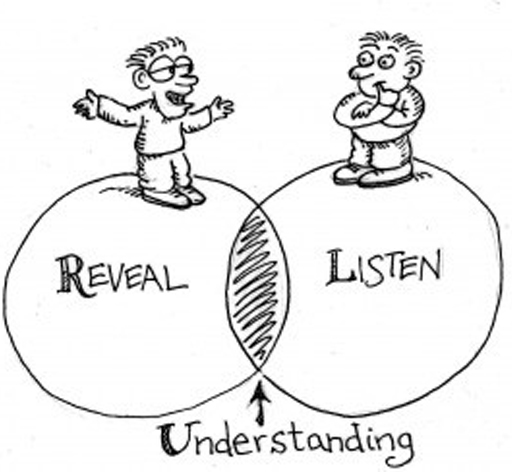1 Listening is more than hearing
Listening is the most fundamental component of interpersonal communication. For example, you use your listening skills to learn, for pleasure and to gather information. While we all use our listening skills every day, unless we are actively listening, we are unlikely to take in everything we hear.
For listening to be effective in the workplace, it should be an active process in which a conscious decision is made to listen to and understand the messages of the speaker.
Horowitz (2012) explains how the brain responds differently when we use active listening.
…when you actually pay attention to something you’re listening to, […] a separate ‘top-down’ pathway comes into play. Here, the signals are conveyed through a dorsal pathway in your cortex, part of the brain that does more computation, which lets you actively focus on what you’re hearing and tune out sights and sounds that aren’t as immediately important.
Some people are naturally ‘good listeners’, but the rest of us can improve by learning and practising our listening skills.

